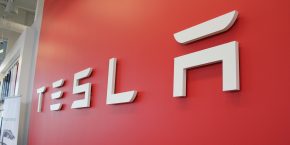
During its first quarter 2019 earnings call last night, Tesla confirmed that it is delaying the production of Tesla Semi, its electric semi truck program, to next year.
When unveiling Tesla Semi in 2017, Tesla started guiding a start of production in 2019, but it has never updated the timeline until now.
Jerome Guillen, Tesla’s President of Automotive and the head of the Tesla Semi program, said when asked about the production of the electric truck yesterday:
“Next year we will start production. We are very happy, we are driving the trucks extensively with so far, I think, quite amazing success, yes.”
It’s the first time that Tesla confirmed that the production has been delayed to next year.
Furthermore, the company is still not confirming a production location for the electric truck.
Guillen only reiterated that Tesla Semi powertrains will be made at Gigafactory 1 in Nevada:
“The location is not yet set, but it’s pretty clear that we will make all the batteries and drivetrains in Reno (later correct to Sparks, Nevada).”
The executive also said that they are currently testing the electric trucks with maximum loads and that they are making improvements to the design.
The news that production is being pushed to next year comes after Tesla Semi production recently came back into focus following CEO Elon Musk saying that he is “looking forward” to it as Tesla was releasing a series of promotional videos of the Tesla Semi prototype carrying Tesla vehicles.
Also, the company released a new Tesla Semi diecast using the “same 3D CAD data used to manufacture the actual Tesla Semi”.
Musk previously said that Tesla aims to manufacture 100,000 electric trucks per year.
Over the past two years, Tesla has been taking reservations for the electric truck and said that the production versions will have 300-mile and 500-mile range versions for $150,000 and $180,000 respectively.
Electrek’s Take
As I wrote earlier this month, we expected an update on that front as the timeline for deliveries is very important for Tesla Semi customers – arguably more so than for Tesla’s previous vehicles.
They gathered a lot of reservations and it’s similar to Tesla’s previous vehicle programs, but those reservations are from commercial customers who are waiting for the vehicle in order to update their fleets, which are an essential part of their business.
They can’t wait indefinitely to upgrade their fleet and therefore, they need Tesla to be clear about their manufacturing plans.
Tesla did add more clarity by confirming that production has been pushed to next year, but it would add confidence if Tesla could confirm a production location, which is expected to be Gigafactory 1 in Nevada.
FTC: We use income earning auto affiliate links. More.




Comments